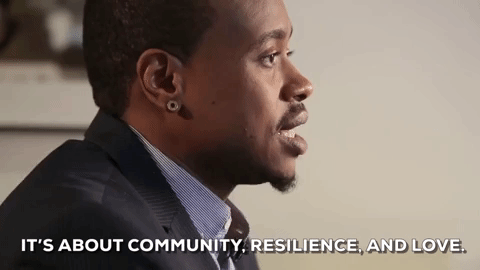In 2009, I made the choice to commit myself to the practice of learning Chinese. Just as falling in love is more a matter of the heart than the mind, for me, the choice to study Chinese was emotional, not practical. I fell in love with the Chinese language and its culture. With learning each new Chinese character, I felt a new mystery had been unlocked and a world in which I knew nothing, was suddenly within my grasp.
Nothing proved to be as satisfying as uttering a complete sentence in Mandarin using the correct tones and the correct emphasis. I entered college determined to make a difference in my life, and yet, unsure of how to do that. I wasn’t clear on how learning Chinese might help me in that regard, I just knew I enjoyed the process and I believed it would somehow pay off.
Much of my success in learning Mandarin was due to the inspirited teachers from the CLI institute of Guangxi in Guilin, China, and Middlebury College’s Chinese Summer Program. Looking back, attending Middlebury College’s summer Chinese language program in 2010 was one of the most onerous summers of my adolescent life, it taught me more than I knew at the time about how to my own potential.
I worked harder than I ever had just to keep up, and mostly adhered to the language pledge we swore into; to speak only Chinese for the four weeks we'd be there. I knew that the strive I’d been through had finally paid off at the end of the program when I had begun to dream and think in Chinese. I was floored with myself.
A few summers later, I would find myself living with a family in Guilin, China, and working with the CLI institute teachers up to four hours a day. I had not known a single soul before entering the village, and it was a predominately Chinese speaking region. (Aka not even my teachers spoke English.)
I'd like to think that attempting to learn another language has impacted me in a variety of ways.
1. While listening, reading or writing, it is imperative not only to stay mindful, but also to attempt the production.
Simply going through the motions of writing, reading or listening, without understanding and being able to produce it back isn't always enough. Immersing yourself in the mindset of the language can help solidify your understanding, and help it stick.
It’s easy to feel overwhelmed while learning a language, especially one without a set alphabet, so focusing on the current sentence, character or grammatical pattern is an effective way to compartmentalize the information.
The same applies in my daily life, instead of feeling an overwhelming sense of duty, I have learned to check off one box at a time. Staying mindful is a daily practice.
2. Failure is not doing something wrong, failure is not trying.
When I first began my journey of learning Chinese, I felt insecure in my ability to comprehend or speak the language. I was initially fearful of speaking in class, and as a result, my comprehension level remained stagnant. When I later allowed myself the freedom to speak without fear of my failure, I could finally progress in my studies.
I once heard a myth that drinking a glass of wine or beer before a language class could improve your productivity. Although it might sound peculiar, the idea behind it makes sense. Alcohol loosens your tongue, and if you aren’t afraid to sound dumb, you’re more likely to speak up and not second guess yourself.
3. To succeed and maintain your well-being, you must be resilient.
Resilient behavior is what constitutes the best way to measure adaption and hardship. Resilience is part of an ordinary, healthy, human development, rather than some extraordinary ascribed trait. Resilient behaviors are often learned through experience, and they help shape the person you will be going forward.
Regardless of how daunting a task may seem, resilient people don’t dwell on possible failures; they observe the facts of a situation, learn from their errors, and march forward. They use adversity to build strength, wisdom, and personal power.
When I sit down to open my Chinese textbook, I feel empowered, knowing that I'm in charge of my own education.
4. I have learned new ways to practice empathy and humility.
I have cultivated new ways to be more empathetic to immigrants and non-native English speakers.
When I hear broken English escape the lips of those who aren’t yet fluent in their second or third language, instead of judging their inability to complete a grammatically correct sentence, I marvel at their bravery to communicate in another language. When a non-native English speaker attempts any phrase or sentence, they are vulnerable in many ways. I commend those who leave their comfort zone to explore another country, society or cultural perspective.
I have been the foreigner whose Chinese was somewhat broken. I’ve been both laughed at and judged for my mistakes. I’ve been appreciated and commended for my efforts, and I’ve been stereotyped by my appearance or misunderstood before I could even finish a breath. To learn another language and enter another culture is to be truly vulnerable. I admire those who take on the challenge.
I am the beneficiary of my own Chinese learning. I have come to understand that first and foremost, we are all members of a global community and that each of us has an indispensable role in shaping it.
Had I not chosen to learn the Chinese language, I might never have come to understand these invaluable life skills.

























